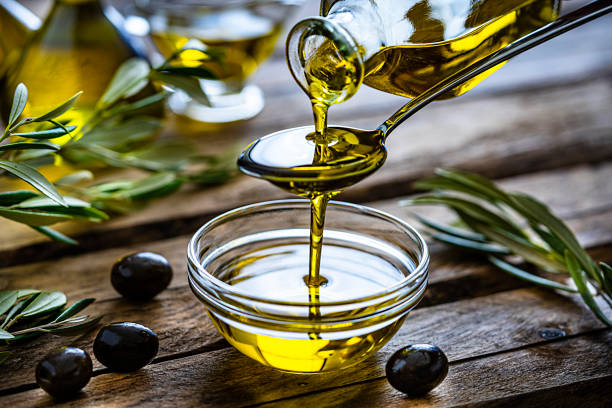Cooking oils are more than simply a tool for sautéing vegetables or frying eggs; they also have a significant impact on your cardiovascular health. The fats you consume can influence your cholesterol profile, blood pressure, inflammatory levels, and risk of heart disease. While some oils improve arterial flexibility and lower dangerous LDL cholesterol, others can cause oxidative stress and increase your risk of heart disease.
In this article, we’ll go over the finest cooking oils for heart health, including what makes them superior, how to use them, and which ones to avoid to protect your heart.
MUST READ; Natural Supplements to Balance Hormones
Why Your Cooking Oil Choice Matters for Heart Health
Oils contain a variety of fats, including monounsaturated (MUFA), polyunsaturated (PUFA), saturated (SFA), and trans fats. Oils high in MUFA and PUFA are known to be heart-protective, particularly when they substitute saturated or trans fats in the diet. They can help:
- Lower your LDL (bad) cholesterol
- Increase HDL (good) cholesterol
- Improve insulin sensitivity
- Reduces systemic inflammation
- Support artery function
Oils heavy in saturated fat or heat-damaged (such as those used in repetitive deep-frying) can raise plaque build-up, oxidative stress, and blood pressure, all of which are risk factors for heart disease.
Top Oils That Truly Promote Heart Health
Let’s start with the oils that are most effective in protecting your heart. These selections are high in healthy fats, antioxidants, and have been shown to improve cardiovascular health.
1. Avocado Oil: Stable and Heart-Healthy for High-Heat Cooking
Avocado oil is another oil strong in monounsaturated fats and vitamin E. It has a similar flavor profile to olive oil but a considerably higher smoke point, making it ideal for cooking. It also aids in the absorption of carotenoids from vegetables, which may enhance lipid profiles in persons with high cholesterol.
2. Flaxseed Oil: A Plant-Based Omega-3 Booster
Flaxseed oil is one of the greatest plant sources of ALA, an essential omega-3 that promotes heart health by lowering blood pressure, lipid levels, and arterial stiffness. However, it is extremely unstable and should not be heated.
3. Walnut Oil: Nutty Flavor with Cardiovascular Perks
Walnut oil includes plant sterols, ALA, and polyphenols, all of which promote heart health. It has been demonstrated to improve endothelial function and lower inflammatory indicators when ingested on a regular basis. However, it is not appropriate for high-temperature cooking.
4. Grapeseed Oil: Light, Versatile, and High in Polyunsaturated Fats
Grapeseed oil is abundant in polyunsaturated lipids, particularly linoleic acid, and vitamin E. While some experts are concerned about grapeseed oil’s high omega-6 concentration, it can be beneficial to the heart when ingested as part of a well-balanced omega-3-rich diet.
5. Extra Virgin Olive Oil: The Mediterranean Heart Hero
Extra virgin olive oil (EVOO) is usually considered the gold standard for heart health. It’s high in monounsaturated fats, particularly oleic acid, and includes polyphenols, which are antioxidants that protect blood vessels and prevent inflammation.
Oils to Use in Moderation (or avoid)
Not all oils are appropriate in a heart-healthy kitchen. Some can promote inflammation, LDL oxidation, and arterial damage.
- Coconut Oil: While trendy, it’s high in saturated fat (over 80%). Some studies show it may raise HDL, but it also raises LDL. Use occasionally, not as a staple.
- Palm Oil: Often heavily processed and high in saturated fats. Unrefined red palm oil has some antioxidant value, but it’s best used sparingly.
- Vegetable Shortening & Margarine: These may contain trans fats or highly processed fats that damage cardiovascular health. Avoid entirely.
- Partially Hydrogenated Oils: These are the main source of industrial trans fats. They increase LDL, lower HDL, and contribute to plaque build-up in arteries.
Final Thoughts: Heart-Healthy Oils Start with Smart Choices
Your cooking oil is more than simply a culinary component; it plays an active role in your heart health. You may protect your arteries, reduce inflammation, and maintain cholesterol balance by selecting oils high in monounsaturated and polyunsaturated fats and using them at proper temperatures.
To achieve the best cardiovascular outcomes, mix heart-healthy oils with a diet high in veggies, lean meats, whole grains, and omega-3-rich foods like fatty fish, walnuts, and chia seeds. Remember that moderation is key: even healthy oils are high in calories and should be used with caution.


